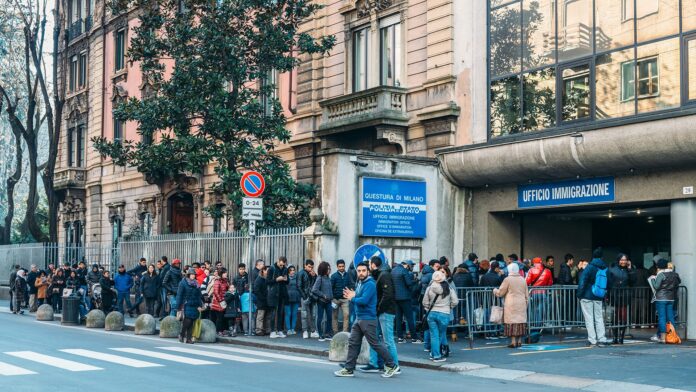Author: Paolo Biondi
Affiliation: School of Advanced Study, University of London, UNHCR
Organization/Publisher: Academia.edu
Date/Place: March 2018/USA
Type of Literature: Analysis
Number of Pages: 11
Keywords: Italian Job, Migrant, Asylum seekers, Detention Centers, refoulement
Brief:
This brief legal note sets out the juridical gap of the Italy-Libya engagement in 2017 to stifle the migrant flows to the EU. The author spells out the different approaches, and the evolutionary interpretation and application of relevant legal doctrine to show how Italy is complicit in Libyan wrongful acts against migrants and asylum seekers, despite both states’ claim of acting legally in the absence of judicial precedent. There is a lack of clear-cut precedent upon the extraterritorial application of the ECHR (European Court of Human Rights) to an EU Member State’s acts of facilitation of internationally wrongful acts committed by another State — “ contactless” acts. The consequences, nevertheless, can raise international responsibility. According to many Articles (3 ECHR and 33 (1) of the 1951 Geneva Convention) and Conventions (Convention against Torture and the 1966 Covenant on Civil and Political Rights), states cannot turn back people (refoulement) towards a country where they may be subjected to a serious risk or inhuman and degrading treatment, including turning back people in international waters. To avoid the risk of being reported to the ECHR, Italy has sought an alternative option of asking the Libyan authorities for permission to act within the Libyan territorial waters and begin returning back people. Though Italy is not acting in international waters, the result of the act is infringing on Article 13(2) of the Universal Declaration of Human Rights (UDHR), 11 Article 2(2) of the Protocol No. 4 to the Convention for the Protection of Human Rights and Fundamental Freedoms securing certain rights and freedoms other than those already included in the Convention and in the first Protocol 12 and/or Article 14(1) UDHR 13 and 18 of the Charter of Fundamental Rights (CFR). Again, with the risk of being reported to ECHR, Italy decided to ask the Libyans to do the job for it instead. But this does not make Italy innocent; Italy is facilitating and supporting Libya’s illicit acts by supplying technical supports and providing training and bots to Libya to perform such activities. This creates international responsibility since the turning back would expose migrants to torture and serious risk when they are pushed back into their origin countries or detention centers in the current critical prevailing conditions in Libya. Libya can be accused for violating international conventions and treaties depending on where it acts and the wrongful activities of exposing migrants to serious risks (preventing people from seeking asylum elsewhere); Italy is still responsible for Libya’s wrongful acts as stipulated in Article 16 of the Draft ARSIWA (Articles on Responsibility of States for Internationally Wrongful Acts) in conjunction with violation occurring under both the ECHR and other conventions, such as the UN Convention Against Torture. Furthermore, Italy is financing activities in Libya’s detention centers and it is financing Libyan militias to stifle the migrants’ flows and blocking migrants’ departure with knowledge of the wrongful acts being committed. Both offshore and onshore activities by Italy and Libya must be considered in light of the chain of risk and constructive refoulement. It is a must for all actors to continue reporting on the treatment of refugees and asylum seekers and focus upon the risk to which the potential applicants for international protection and persons similarly situated can be exposed in their country of origin.
By: Imad Atoui, CIGA Research Associate




